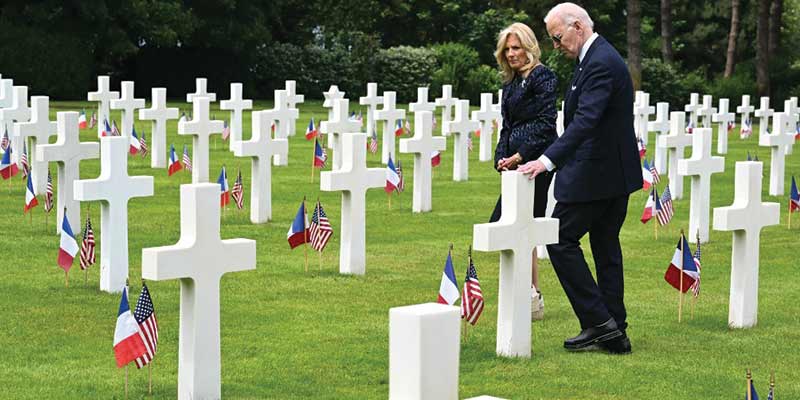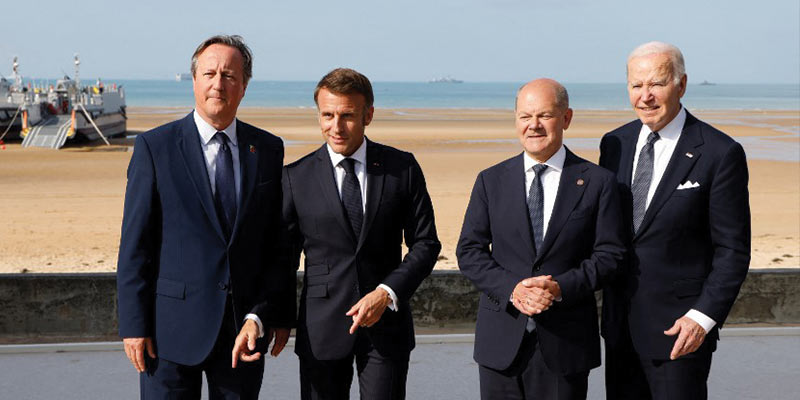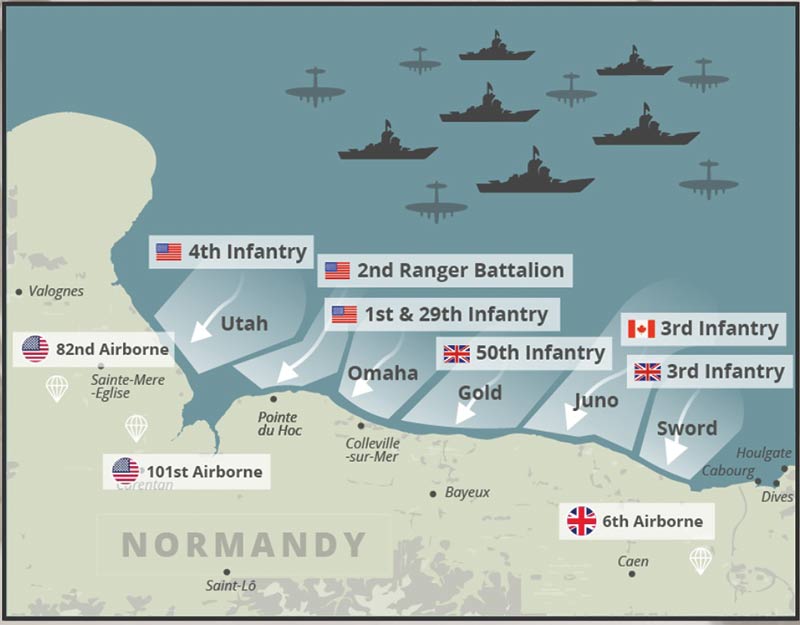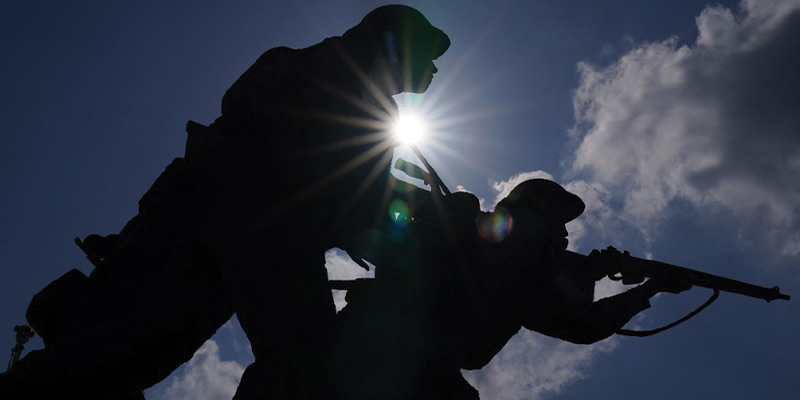- World
- Jun 07
Explainer - 80th anniversary of D-Day and the Battle of Normandy
• The 80th anniversary of ‘Normandy landings’, also known as ‘D-Day’, was observed on June 6 with a series of major commemorations and events across the UK and in France.
• At a joint ceremony with French President Emmanuel Macron and US veterans at the Normandy American Cemetery, US President Joe Biden made an impassioned call for the defence of freedom and democracy at the 80th anniversary of the D-Day landings in Normandy, urging Western powers to stay the course with Ukraine and not surrender to Russian tyranny.
• Macron presented a Legion d’Honneur award, France’s highest honour, to Christian Lamb, a 103-year-old member of the wartime British female naval service who helped plan the landings, describing her as “a hero in the shadows”.
• At a British commemoration in Ver-sur-Mer earlier in the day, Britain’s King Charles, in full military uniform, also urged greater international collaboration to fight tyranny. German Chancellor Olaf Scholz and many others also took part in the day of tributes.
Battle of Normandy
• During World War II, D-Day was the successful allied invasion of the beaches of Normandy on June 6, 1944.
• The armed forces used codenames — Operation Neptune and Operation Overlord — to refer to planning and execution of specific military operations to prepare for D-Day.
• The Normandy landings made up the largest seaborne invasion in history and played a crucial role in liberating Western Europe from Nazi occupation.
• The Allies selected Normandy as the landing site for the invasion because it provided the best access to France’s interior.
• D-Day was of unprecedented scale. The allied forces’ staggering operation involved the coordinated efforts of more than 155,000 troops supported by 11,500 aircraft, and 6,900 naval vessels in an assault on five Normandy beachheads in France.
• It is known as the largest amphibious invasion in military history.
• The soldiers invaded France by sea and air to drive out the forces of Nazi Germany, coming ashore at five beaches codenamed Omaha, Juno, Sword, Utah and Gold or dropping from the sky.
• Integral to its success were years of planning, intelligence gathering, and deception campaigns, as well as the courage of the thousands of brave men that stormed the beaches that day.
• International collaboration was crucial to the allied victory. While most of the personnel that landed in Normandy on D-Day were from the UK, the United States, and Canada, a significant number from Australia, Belgium, Czechoslovakia, Denmark, France, Greece, the Netherlands, New Zealand, Norway, and Poland also took part in the Normandy Campaign.
• Military innovation was another important factor contributing to the success of the assault. Among the long list of inventions created for or used for the first time on D-Day were a tide-prediction machine that identified the best time and date for the invasion, two artificial harbours (the Mulberry Harbours) created by sinking outdated ships and large concrete structures that helped the allies to efficiently unload cargo, and pipelines under the ocean (PLUTO) that supplied petrol from Britain to Europe to fuel the Normandy campaign.
• By the end of August, more than two million men had crossed the English Channel, starting the march to Berlin that ended with Germany’s surrender on May 8, 1945.
• From D-day to August end, the Allies suffered more than two lakh casualties. German losses included over 240,000 casualties and 200,000 captured. Between 13,000 and 20,000 French civilians died, and many more were seriously wounded.
• The D-Day altered the course of history, signalling the beginning of the end for Nazi Germany. Allied forces shattered Hitler’s Atlantic Wall, opening another major front, and affording them a crucial foothold in Western Europe.
• The Normandy Campaign featured intense and gruelling battles to liberate key cities like Caen. The establishment of a secure front in Normandy was crucial for allied forces to launch further offensives, leading to the liberation of Paris, the push towards Germany, and, ultimately, to victory.
Manorama Yearbook app is now available on Google Play Store and iOS App Store




